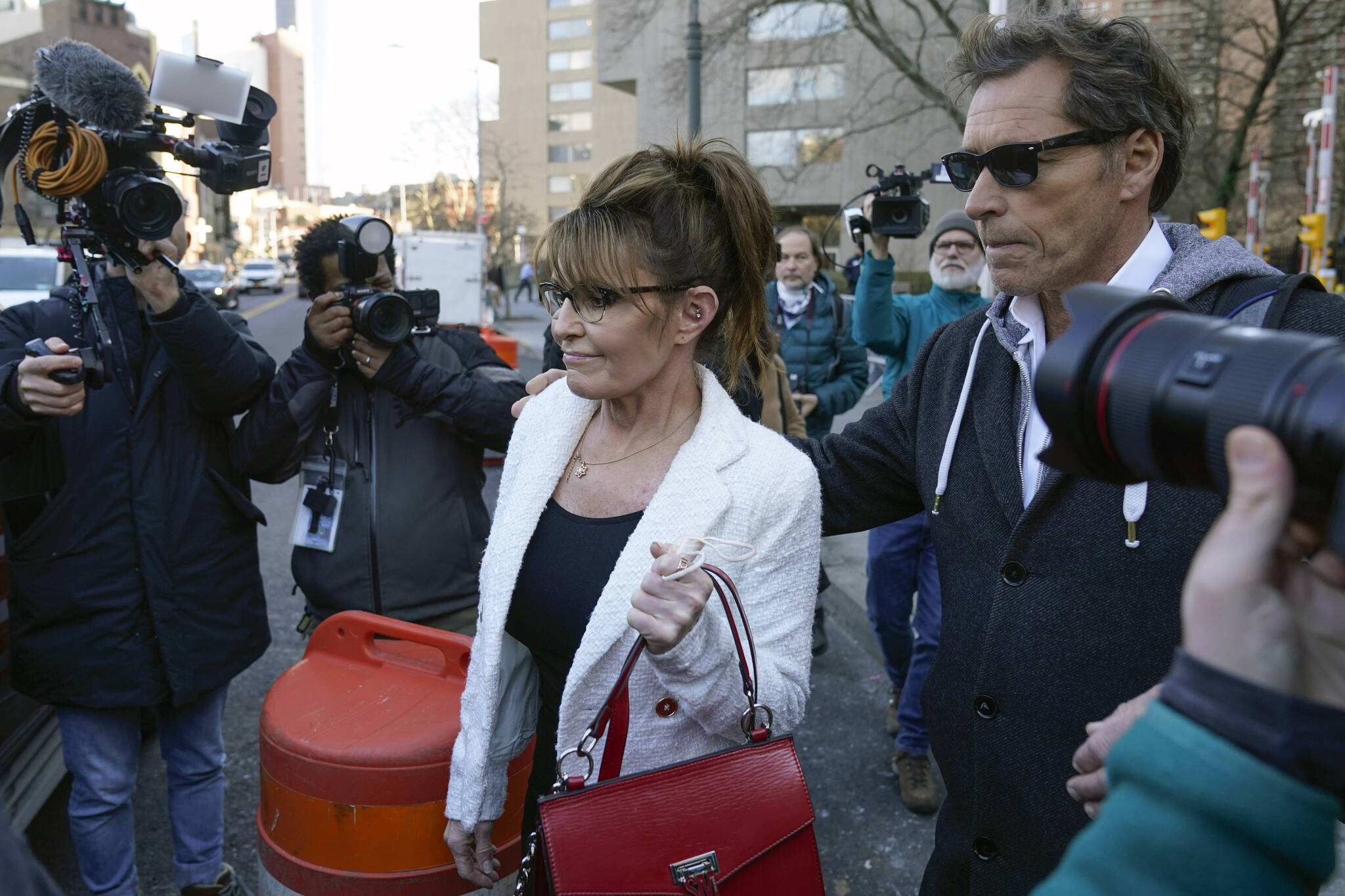NEW YORK — Former Alaska Gov. Sarah Palin told a jury Thursday she felt like she was at the mercy of a “Goliath” when she first learned a 2017 New York Times editorial suggested her campaign rhetoric helped incite a mass shooting.
Palin used her second day on the witness stand to accuse the Times of deliberately fabricating lies that hurt her reputation — the basis of a lawsuit accusing the newspaper of libel that has resulted in a trial in federal court in Manhattan.
“It was devastating to read a false accusation that I had anything to do with murder,” Palin said. “I felt powerless — that I was up against Goliath. The people were David. I was David.”
She added: “When you know lies are told about you … that causes some stress. Hard to get a good night’s sleep.”
Palin sued the Times for unspecified damages in 2017, about a decade after she burst onto the national stage as the Republican vice-presidential nominee. She alleged the newspaper had damaged her career as a political commentator and consultant with the editorial about gun control published after U.S. Rep. Steve Scalise, a Louisiana Republican, was wounded when a man with a history of anti-GOP activity opened fire on a Congressional baseball team practice in Washington.
In the editorial, the Times wrote that before the 2011 mass shooting in Arizona that severely wounded former U.S. Rep. Gabby Giffords and killed six others, Palin’s political action committee had contributed to an atmosphere of violence by circulating a map of electoral districts that put Giffords and 19 other Democrats under stylized crosshairs.
On Thursday, Palin said her view was, “The New York Times, the be all and end all, the loud voice in the media, had … taken a knee-jerk reaction and tried to score political points, trying to politicize horrific violence.”
In a correction two days after the editorial was published, The Times said the editorial had “incorrectly stated that a link existed between political rhetoric and the 2011 shooting” and that it had “incorrectly described” the map.
The jury will have to decide whether former editorial page editor James Bennet acted with “actual malice,” meaning he knew what he wrote was false, or with “reckless disregard” for the truth when he inserted the disputed wording into the piece.
A contrite Bennet testified Wednesday that he botched the edit – “I’ve regretted it pretty much every day since” – but meant no harm.
The Times lawyers have argued Palin’s brand has not suffered from the episode, pointing out that she still appears on Fox News, gets hired for speaking engagements and has occasional paid gigs on TV shows like “The Masked Singer.”
When asked about the show on cross-examination Thursday, she said, “It was the most fun 90 seconds of my life.”
Palin, 57, conceded she never asked the Times for a correction, retraction or apology before she filed the suit. She said she did not bother because, “It was common sense. They knew they printed an untruth.”
Shortly after Palin’s testimony concluded, both sides rested. Closing arguments were set for Friday.

